Dayer Quintana: A glimmer from the shadows in Colombia Oro y Paz
Nairo Quintana's younger brother makes a name for himself with home win
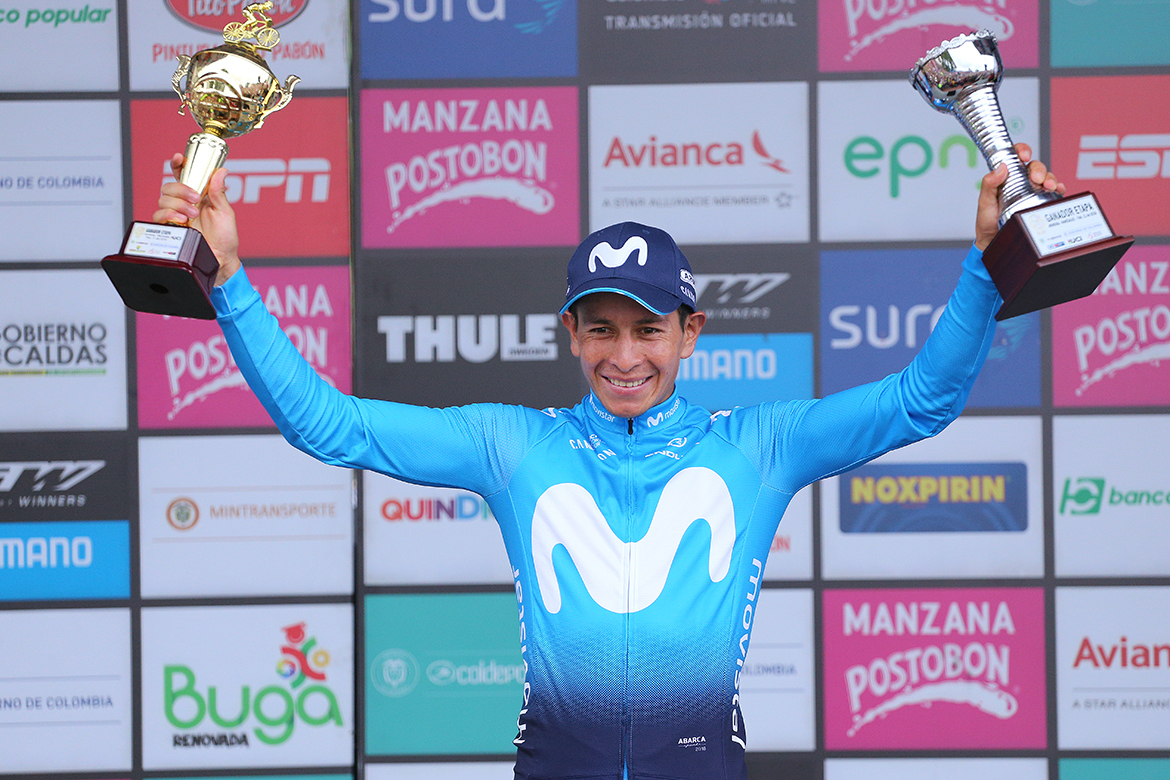
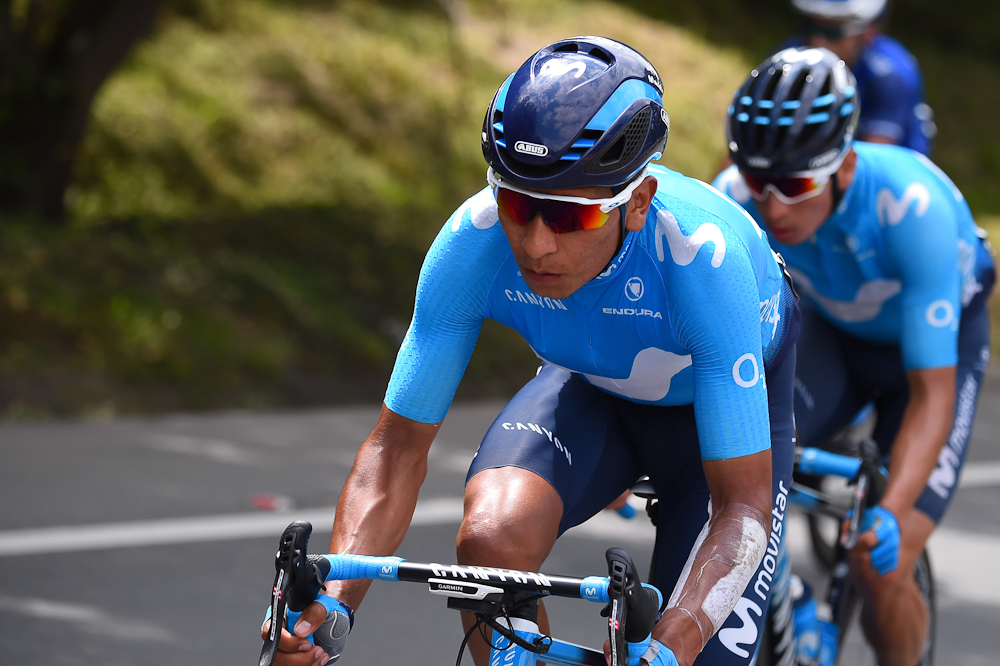
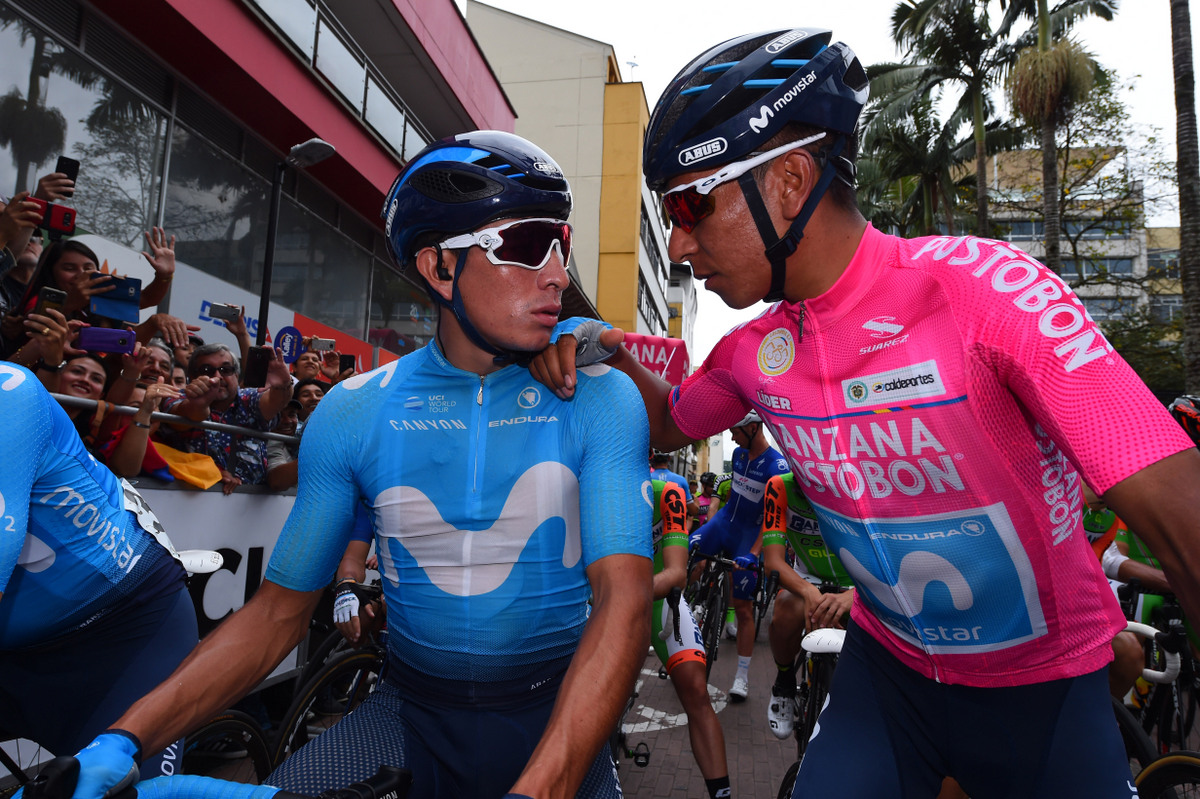
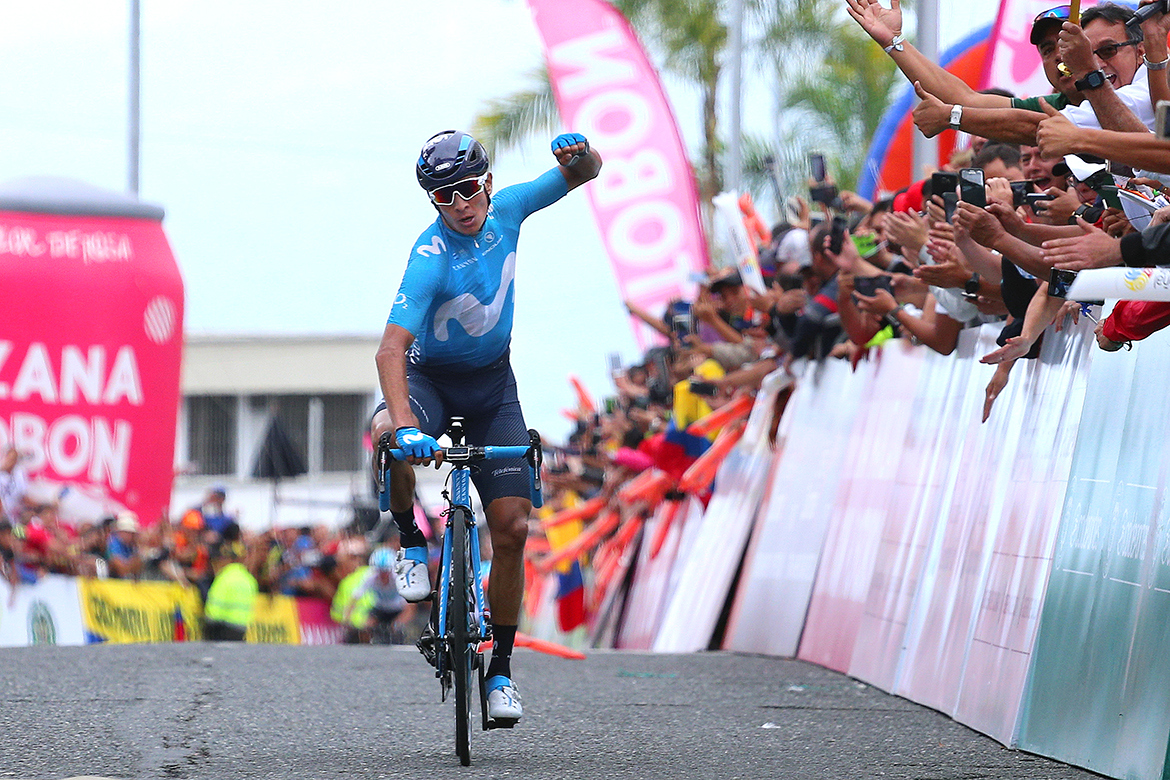
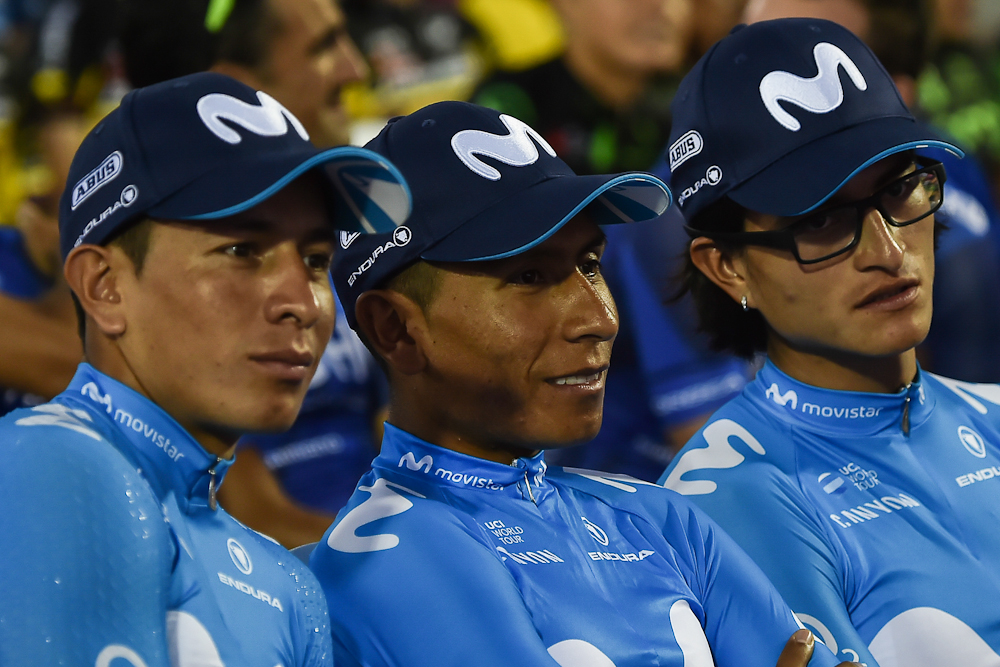
The big-screen television in Manizales at the finish area of the final stage of the Colombia Oro y Paz cut out at the worst possible moment. Suspense was already high, with Rodrigo Contreras on the brink of a spectacular stage win and Egan Bernal making a dramatic late grab for the overall, but the blackout threw the crowds into a state of complete agitation.
Dayer Quintana wins Tour of Austria queen stage
Tour de San Luis: Dayer Quintana rides out from under older brother's shadow
Dayer Quintana wins Tour de San Luis
Colombia Oro y Paz: Uran wins penultimate stage as Quintana takes race lead
Nairo Quintana predicts 'war' at Manizales on final day of Colombia Oro y Paz
Colombia Oro y Paz: Bernal bags overall victory in explosive finale
Those with a view of the finish line could see it for themselves but many others had to rely on street vendors listening to the commentary through crackling radios.
"Quintana!" came the shout from one selling corn-on-the-cobs, sending those in the immediate vicinity into fits of excitement.
"Dayer!" came the next shout. It was far from disappointment, but some of the magic did slip from the atmosphere.
It's difficult to overstate Nairo Quintana's popularity in Colombia, which hits levels only matched by footballers Falcao and James Rodríguez. Rigobero Urán is adored, too, but in a man-of-the-people way. With Nairo it's almost religious. As a sickly baby his parents famously took him to a shaman, believing him to have been infected when a dying man touched the womb of his pregnant mother, and now it's like everyone thinks if they can get near him some of his grace will rub off on them.
He has a police escort when he goes out training because if not he soon finds himself in a peloton of Tour de France proportions. Everywhere he went at the Oro y Paz – from the hotel to the bus, from the bus to sign-on, from the finish line to the bus – he was mobbed. Even the security officials tasked with ploughing through the crowds were taking selfies – they were just first in line.
It was much more low-key with Dayer, who would side-step the surging crowds with a shy smile. He was in demand with the media, too, but a question about Nairo was never far away.
Get The Leadout Newsletter
The latest race content, interviews, features, reviews and expert buying guides, direct to your inbox!
So there was a certain feel-good factor in Manizales when he had his moment in the limelight and his name chanted by the thousands of fans. "I'm made-up," said Nairo, who indeed lost the overall title to Bernal. "The truth is that the victory of my brother makes me much more happy than if I'd won the race myself.”
Nairo might be in the process of writing the family name into the history books of professional cycling, but Dayer – after wins at the Tour of Austria and Tour de San Luis in recent years – continues to provide reminders that there's more than one Quintana.
A united family
Dayer, two-and-a-half years younger, got into cycling because of Nairo. Their parents bought Nairo a bike and he showed Dayer how to ride it. Soon he had one of his own.
"The bike was a mode of distraction for us," Dayer tells Cyclingnews in Pereira, just south of Manizales. "It was a time when mobile phones didn't exist, when the world of technology was only just developing. The bike was our way of doing something different. We could go down to the river, mess around, have a swim, go hang out with friends."
The bike was also a mode of transport, helping them make the 32-kilometre round trip to school every day, and a way of helping out their father, Luis, who ran the farm where they lived in Tunja, Boyaca, nearly 3,000 metres above sea level.
"He's always been a farmer and lived the rural life, so the bikes allowed us to take a bit of the pressure off him. We would take some of the produce from the farm and sell it in the markets."
The whole Quintana clan were present throughout the Oro y Paz race, including the parents Luis and Eloisa, who were both much sought after for handshakes and selfies. They’ve been to Europe to see Nairo race and win Grand Tours but seeing the pair in action on home soil gave a unique sort of pride.
"We've always been a very united family. With my brothers, sisters, and parents, it's a very tight-knit family atmosphere," says Dayer, who explains he's always had a strong relationship with Nairo, "aside from a few moments during adolescence".
"We each wanted to have a bit more privacy. You'd have a girlfriend and just wanted to go out with her but your brother wouldn't let you, or just bickering about stupid things - teenage stuff. But we got over that period. After the bickering came more of a friendship."
And on the bike…
"We had a friendly rivalry but there was always that bit of an edge to it – wanting to get one over on the other. From home to school it was 16 kilometres and we had strategically placed points for a sprint and for a king of the mountains prize. That was probably a good thing because when we trained together we'd put that bit more effort into our rides and that probably helped us for the races."
The brother in the back
The overwhelming majority of the time it was Nairo who'd come out on top and it's hard to escape the feeling that Dayer has stayed well in his brother's slipstream ever since.
He started riding his bike because Nairo did, and set out to become a professional cyclist because Nairo was already on that path. Nairo helped set up a team for Dayer to race on as a junior – which incidentally led to Dayer having to take 18 months out through conscription to the police force, one of the team's backers.
Nairo would later facilitate Dayer's move to Europe through a contact at the Lizarte team and in 2014 Dayer turned pro with Movistar, as Nairo had done two years previously. Dayer told Ciclismo International a few years ago that he never wants to ride against Nairo.
"No, no, no. Sincerely, no," he says now when asked if he feels overshadowed by his brother.
"I've done many different races now – not only with him but with different riders, in different countries. Now people know me for who I am and not for the being Nairo's brother. They're aware now of what type of rider I am, what type of person I am, and I do feel esteem and affection from the public.
The victories, of course, help him distinguish himself in the mind of the public, but he also points to his personality.
"People seem to like that I'm a bit more open than Nairo. It's been the same our whole lives. Nairo has always been the more reserved one. I'm more extroverted, more open, with more charisma with people.
"That's always helped with our relationship and set us apart from one another. That's what characterises us, and it's what unites us at the same time."
A breakthrough
Dayer Quintana finds himself at a strange time in his professional cycling career, and in that respect his victory in Colombia couldn't have been more timely.
His four years as a pro have been punctuated with successes – a stage of the 2014 Tour of Austria and the overall at the 2016 Tour de San Luis, and selection for a first Grand Tour at the 2015 Giro d'Italia – though it feels like he's still to establish himself properly. He was particularly disappointed with his 2017 season, which contained 55 race days and no Grand Tour.
A nasty crash at the E3 Harelbeke begged the question: what was he, a pint-sized climber like his brother, doing at the cobbled Classics in the first place? It's been a theme. As a neo-pro he was thrown into both the Tour of Flanders and Paris-Roubaix, and out of eight spring Classics he's started, he has completed just one – as the second-last finisher at last year's Dwars door Vlaanderen. Suspicions that he was making up the numbers intensified this winter when it was rumoured Movistar would not renew his contract. Those rumours were denied and he was handed a one-year extension.
Movistar manager Eusebio Unzué has criticised Dayer for a lack of application in the past, and he touched upon his characteristics as a rider in Manizales.
"With Dayer, in certain moments it clicks. When he's in good form, and also at 100 per cent mentally, he’s able to give us surprises like this," Unzué told Cyclingnews.
"We saw it in Austria three years ago, and then again in Argentina. That's how he is. He's not a man of stability, of continuity, of consistency, like his brother, but from time to time he has these days where he really is able to do spectacular things."
Dayer will head to the Abu Dhabi Tour later this month before riding a pair of WorldTour races in Paris-Nice and the Volta a Catalunya. Unzué is cautious when asked if Dayer is in line for a Grand Tour – "the Giro, maybe," but not the Tour.
"With Nairo, Valverde and Landa all doing, and a couple of other riders almost certain to go, there’s not much room left,” says Dayer, who insists he's never thought about changing teams to look for more opportunities.
Dayer used to say his dream was to emulate the success of Nairo, but, naturally, his aspirations have been downgraded somewhat.
"I love this job, and I hope to have many more years in professional cycling. I want to keep improving – I'm focused on becoming the best rider I can be. I will always help my teammates but when I have my opportunities I want to take them."
As he reminded us at the Oro y Paz, his career might not contain the glitter and gold of his brother's, but it will be no less worthy for it.
Patrick is a freelance sports writer and editor. He’s an NCTJ-accredited journalist with a bachelor’s degree in modern languages (French and Spanish). Patrick worked full-time at Cyclingnews for eight years between 2015 and 2023, latterly as Deputy Editor.
